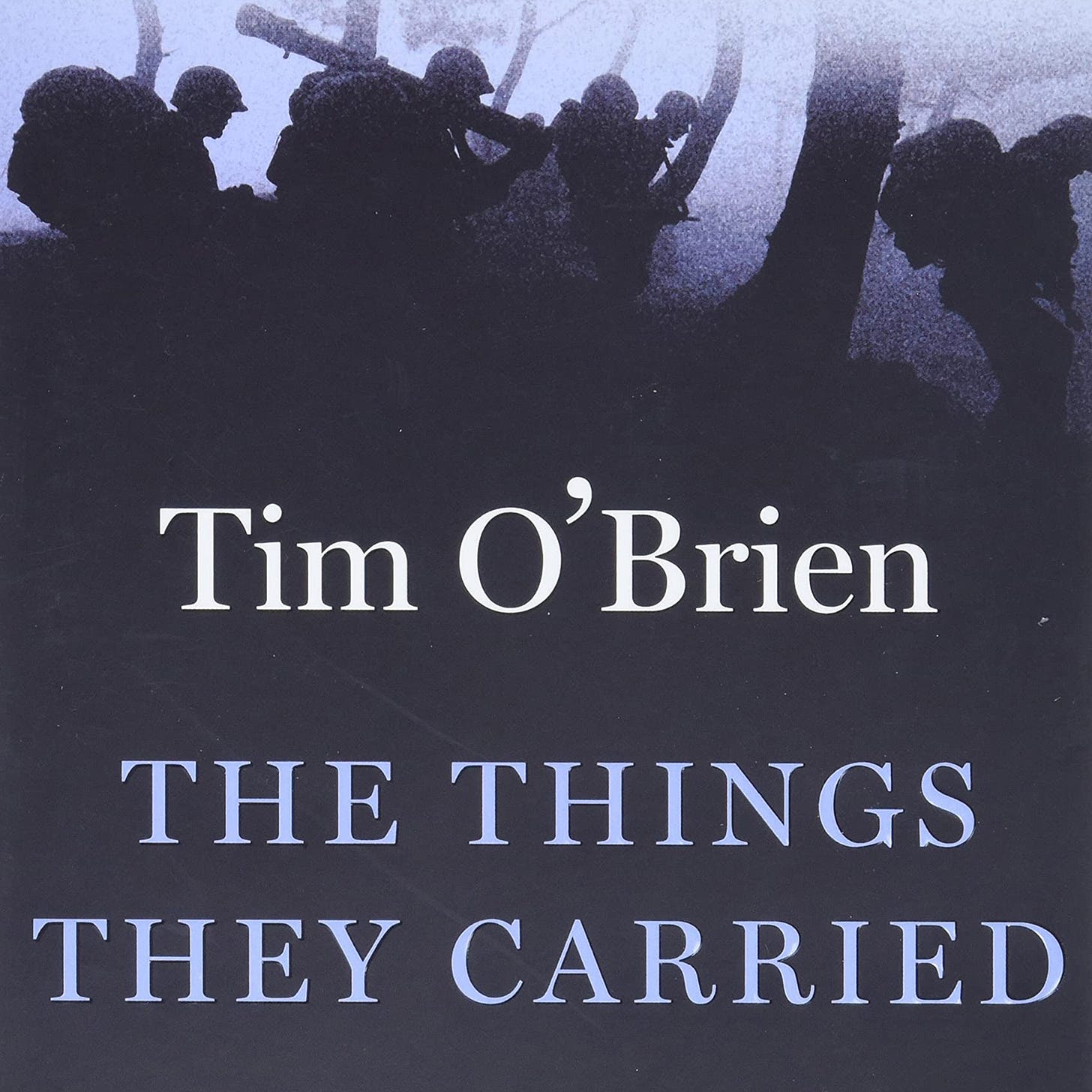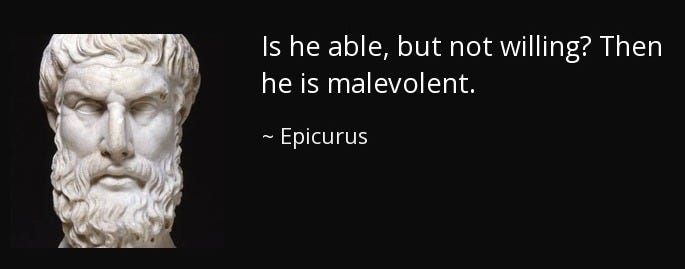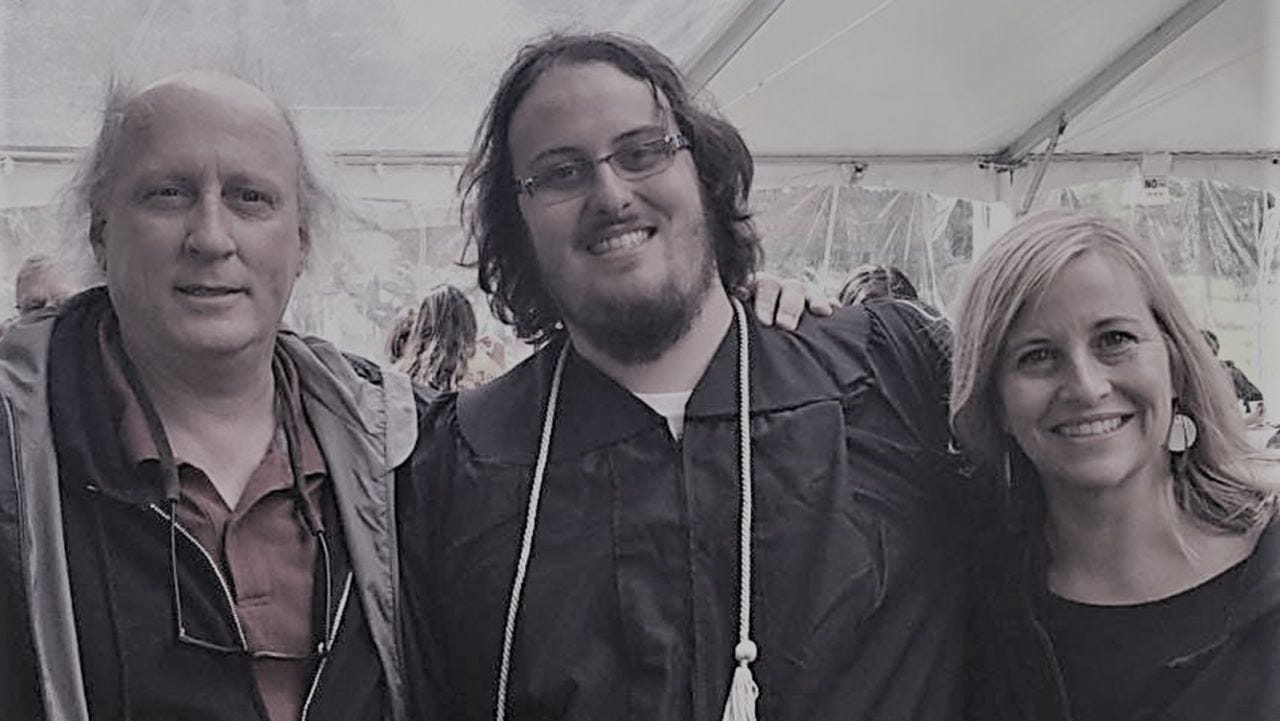Early Classic—“Sam Stone”
In 1970s, the Chicago Sun-Times critic Roger Ebert walked into a folk music club—they used to have clubs where people played folk music—and happened to hear some songs by a mailman named John Prine. Ebert knew that he was catching a glimpse of something special.
He sings rather quietly, and his guitar work is good, but he doesn’t show off. He starts slow. But after a song or two, even the drunks in the room begin to listen to his lyrics. And then he has you.
The late critic especially liked a protest song called “The Great Society Conflict Veteran’s Blues.” By the time it came out on John Prine in 1971, the song had been renamed to “Sam Stone.”
It’s easy to see why people called Prine “New Dylan” at the time. The talking-blues singing; the nasally tone. While the influence is undeniable—and Dylan himself has spoken fondly of Prine’s “pure Proustian existentialism—” they strike me as radically different songwriters.
Even Dylan’s early narrative tracks, like “Ballad of Hollis Brown,” leaned heavily impressionist, with meandering melodies, semi-chanted choruses and riff-heavy lyrics that stemmed from his improvisational modus operandi.
Prine’s “Sam Stone,” by contrast, is very tightly written in a verse-chorus-verse structure that repeats three times over a recursive fingerpicked melody. In the song, Prine tells a tidy multi-year story about the end of a Vietnam veteran’s life. Sam Stone comes home from the war with PTSD and an opiate addiction, runs out of money, overdoses and dies.
Sam Stone came home to his wife and family
After serving in the conflict overseas
And the time that he'd served had shattered all his nerves
And left a little shrapnel in his kneesBut the morphine eased the pain
And the grass grew 'round his brain
And gave him all the confidence he lacked
With a purple heart and a monkey on his back
It’s worth noting that John Prine himself, who was drafted into the US Army in 1966 at the height of the Vietnam War, never saw combat. Instead he was stationed in West Germany as a mechanic and returned home after two uneventful years. Prine worked as a mailman after his service; he spent countless hours strolling around suburban Illinois, turning over character and story in his head.
Perhaps this lack of personal experience is why “Sam Stone,” for all its brilliance, comes across as an amalgamation of Vietnam War veteran stereotypes. Its main character is given no unique characteristics; Prine writes him vaguely so that he can serve as an archetypal stand-in for the thousands of fucked-up men who came home from their fucked-up country’s fucked-up war.
Prine delighted in the use of lyrical reversals that could subvert in-song and even in-stanza expectations. “The morphine eased the pain,” right, but we don’t get to sit with that, to live in it. In just the next line we are told that “the grass grew ‘round his brain,” layering some ominous darkness over the comfort of the high. The drugs give Sam Stone “all the confidence he lacked,” but he also came home with a “purple heart and a monkey on his back.” In the anti-war context of Sam Stone, of course, the purple heart—a medal given to soldiers wounded in combat—is no less of an albatross than the “monkey on his back” (drug addiction). Both of them are a terrible weight to bear; these are the things men like Sam Stone carried.
There's a hole in daddy's arm where all the money goes
Jesus Christ died for nothing, I suppose
Little pitchers have big ears, don't stop to count the years
Sweet songs never last too long on broken radios, hm-hm-hm-hm
It has been nearly six decades since John Prine wrote this song, and I’m not sure anyone since has penned a better chorus. Say it out loud to yourself, taste the musicality of the syllables: “There’s a hole in daddy’s arm where all the money goes.” It’s a metaphor, but its meaning is direct and unmissable. Then comes the infamous line about Jesus, which has always spoken to me.
To say that Jesus Christ died for nothing—to be brought to this idea by the imagined experience of the PTSD-riddled, opiate-addicted Sam Stone—is to express that the problem of evil, the weight of this veteran’s suffering, is so immense that it undermines the crucifixion of the Lord. This cheeky heresy is classic Prine, who loved to subvert cultural touchstones.
He subverts himself—his own liberal pieties—with the postscript: “I suppose,” rescuing the song from its sincerity and its politics, allowing a cloud of ambiguity to linger over the meaning of his main character’s eventual death. Just like Jesus Christ, Prine seems to imply, Sam Stone died for nothing. Maybe.
Late Classic— “Summer’s End”
The Tree of Forgiveness, John Prine’s final album, came out in 2018, about two years before he died of complications related to COVID-19. It features the outstanding “Summer’s End,” which—like most Prine songs—is an unadorned folk melody where the singing is closely matched to the chord progression. The song is a wonderful showcase for Prine’s late-era vocals; its huskiness is matched to a trembly quality that imbues “Summer’s End” with wise gravitas and knowing sadness.
It’s that sadness that I clung to the first time I heard the song. I couldn’t tell what the lyrics were about, but I could tell they were about something. I listened to it over and over, sang along to it and tried to imagine writing something this special. Recently I learned that the song was written after Max Barry, the son of Prine’s close friend, died of a drug overdose at 22 years old.
Summer's end is around the bend just flying
The swimming suits are on the line just drying
I'll meet you there per our conversation
I hope I didn't ruin your whole vacationWell you never know how far from home you're feeling
Until you watch the shadows cross the ceiling
Well I don't know but I can see it snowing
In your car the windows are wide openCome on home
Come on home
No you don't have to be alone
Just come on home
The song is written from the perspective of an addict’s parent. Its title and thematic focus is the end of innocence. The swimming suits here—symbolizing childhood, frivolity, summer—are not being worn. They are on the line just drying, because this song takes place after.
The second pre-chorus stanza is less opaque than it seems after a number of careful readings. Here the narrator sings to his son, who has left home—or perhaps been kicked out. He talks about, warns about, homesickness, which comes at night when “the shadows cross the ceiling.” We know there is a great distance between them, as he says “Well I don’t know but I can see it snowing,” admitting that this is just a made-up image in his head. Crucially he references snow—because summer, after all, is over. When he imagines that the windows in his son’s car are “wide open,” he expresses an anxiety that this person—who will always be his baby, no matter his age—is fundamentally incapable of taking care of himself.
The chorus is a plea, an interpersonal request: come on home. The chorus instructs the listeners to imagine the narrator of this song as he pens a long letter, or writes an email, or extemporizes lovingly on a voicemail.
The moon and stars hang out in bars just talking
I still love that picture of us walking
Just like that ol' house we thought was haunted
Summer's end came faster than we wantedCome on home
Come on home
No you don't have to be alone (x2)
Here the narrator imagines celestial bodies, hanging out in bars; it strikes me as a pure and vivid flight of imagination, like something from a bedtime story. We are quickly brought low again by the bittersweet sadness of the next line: “I still love that picture of us walking,” underlined by the slow and generous way that Prine stretches out the word walking.
There is something special about verite photos of loved ones, especially once they are gone. They capture a moment in time, preserving the intimate chaos of real life. Because in that one picture, at least, the narrator and his subject are able to be together, walking. This is how grief brings you low, how it sharpens your intense need for those you lost. You do not dare to wish for happiness, for hugs, for emotional conversations. You settle for—you grow to love—that picture of us walking.
The closing lines here suggest that the song’s subject is already dead. After all, “Summer’s end came faster than we wanted,” he sings. It is a sobering, gorgeously spare way to tell us that a young man has died. These lines reframe the chorus, and with it the whole song. The tender refrain to come on home is spoken to the memory of a son. It is closer to a mournful prayer than a genuine request.
To Sum It All Up
“Sam Stone,” which played a significant role in Prine’s ascension to folk-laureate status, is a fable about a fictional, PTSD-riddled veteran’s multi-year arc towards overdose. It plays as melodrama, all of its elements—drug addiction, poverty, death—heightened with provocatively descriptive lanaguage. The heroin rolls through Sam Stone’s blood “like a thousand railroad trains,” we are told, and the kids run around “wearing other people’s clothes.” Prine heightens and tragicizes Sam Stone’s fate to criticize his country and its hopeless overseas interventionism.
“Summer’s End” is something else entirely. Here Prine chooses to live inside of the pain that parents feel when their child succumbs to drug addiction. He sidesteps the nasty personal details, painting his story—outlining his story, really—with watery, drifting paints, showing us not what happened but what it feels like to have that happen to you.
It has been five years since John Prine died, and no one has stepped up to fill his shoes, although Jason Isbell and Gillian Welch and Sturgill Simpson and countless others carry the torch in related subgenres. There are so many outstanding John Prine songs that to write about only two, to pick any two, feels impossible. For now, I’ll just reaffirm my unwavering love for his art and suggest that “Sam Stone” and “Summer’s End” serve as an effectively themed double feature from one of the best folk songwriters who ever lived.
P.S.
Both of these songs have some great covers. My favorite “Sam Stone” covers are by R&B singer Swamp Dogg and lo-fi impresario Teen Suicide; you might also enjoy Phoebe Bridger’s heart-rending take on “Summer’s End.”










Beautiful essay. Sam Stone is a song that can still make me stop whatever I’m doing and listen, despite having heard it probably hundreds of times by now. The first line of the chorus just may be the single greatest lyric ever written, for its melancholy concision